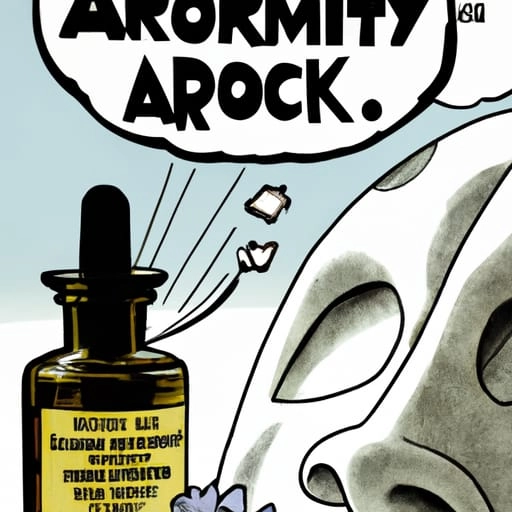How to Calm Anxiety before surgery: A Complete Guide

Anyone who has ever had surgery knows that fear of surgery is common before the procedure. It even has a fancy Greek name: tomophobia, which is fear of cutting, or being cut. But as much as that, it is agnostophobia, or fear of the unknown.
Of course, it’s not that you chose to have this fear of surgery, it just arises. Pre-surgery anxiety is a problem for two reasons; firstly the anxiety, which means flooding your body with stress hormones like cortisol and adrenaline (epinephrine) and can lead to slower healing process and more complications; it can even worsen postoperative pain and prolong the recovery period.
So worry about upcoming surgery can lead to a vicious cycle where the anxiety makes you worry the outcomes will be worse, and that creates even more feelings of anxiety.
It terms of comfort and recovery, it makes sense to reduce the surgical fears and get the stress reduction in place as soon as possible for as long as possible as effectively as possible.
In this blog post, we will provide an overview of surgery anxiety, its different levels and the potential effects of anxiety on a person’s health and surgery experience. We will also provide tips on how to reduce anxiety before surgery and trust your medical team.
At the end of the article, I will set out what I would personally do to manage this preoperational anxiety.
What Is Surgery Anxiety and Fear?
This seems an obvious question, but in my practice, I often have patients who have physical symptoms and do not realize they are anxiety symptoms — I mean sensations such as a racing heart, symptoms such as increased blood pressure, nausea and a nervous stomach, rapid heart rate and even palpitations which can be experienced as an irregular heartbeat.
Often they become concerned that they have some new medical condition. You might be surprised that when I ask some of them, ‘What do you think might be triggering this?’
They say, ‘I don’t know.’ Then I might gently suggest it’s to do with the upcoming operation.
It is very common to have anxiety before an operation, but sometimes the fear can be disproportionate and people experience high a high level of anxiety when they don’t need to.
What type of surgery is it? You might be having a boil lanced, or a skin lesion removed, or an ingrowing toenail fixed, or you might be having a more invasive medical procedure such as an appendectomy or even the removal of a breast.
And as much as there are different degrees of surgery, there are different degrees of anxiety before surgery, though there are very few people who sail through it without a qualm. Different people have different levels of anxiety. For some a minor operation might create severe anxiety, but for others it won’t be a big deal.
Levels of Surgery Anxiety
And as much as there are different degrees of surgery, there are different degrees of preoperative anxiety, though there are very few people who sail through it without a qualm. Different people have a different degree of anxiety. For some a minor operation might create severe anxiety, but for others it won’t be a big deal.
There is no question that surgery anxiety can be a debilitating experience. It can range from mild to severe, and can affect people of any age. Surgery anxiety can stem from a variety of sources, including personal history or genetics, but also previous experiences and personal beliefs about surgical procedures. Whether there are preexisting anxiety disorders or a history of panic attacks is also relevant. As we have noted, patients who feel less anxious about their surgeries have better outcomes overall.
But, given that you’re reading this, I am assuming that you are one of the majority and have at least what we might call some ‘negative feelings’ about the forthcoming operation.
How Can You Minimise Your Anxiety Before A Surgical Procedure – Some Tips
1. Trust Your Medical Team
Remember this is what they do for a living, and they’re still in a job so they must be pretty successful at it. They know that patients get anxious before surgery and they have either had formal training or are skilled through experience in managing this kind of anxiety. They have qualifications, you can even look them up.
Most hospitals these days have a staff list so you can check out your surgeon and your anesthesiologist. You can see where they trained, where they’ve worked before, even if they have any prizes or publications in medical journals. They might even be world experts in this particular surgical procedure.
Good practice requires them to explain the procedure to you to get your valid, informed consent. They will talk through the individual needs of your case and they must ensure you have a good understanding of the surgical treatment along with any risks — there will always be some risks, though the severity of them and how common they are vary by procedure.
They should also give you their opinion about what will happen if you don’t have the procedure. Treatment options must include not having the treatment. In some cases, hospital staff might feel it is better for various reasons that you don’t have it. They will be honest about this. They will tell you the success rates and risk of complications. They will advise you whether a longer hospital stay might be necessary.
This is a lot of information, so take your time to digest it and don’t feel overwhelmed.
Set out your questions and listen to their answers and advice. This way you will build a rapport with them and come to trust them. Once you trust them, that will relax you. Perhaps not completely, but it will relax you when you feel you are safe in their expert hands.
Make sure you discuss likely pain and have a plan for pain medication. Make sure you know the type of anesthesia — general anesthesia, nerve block or a local anesthetic. They will set out a treatment plan which might be called a recovery plan. They will have leaflets and other helpful information, not just things you’ve googled.
One little tip on the day of surgery is to watch the interaction between the doctors and nurses in the operating room (or outside) as they are preparing the procedure. You can notice how they seem relaxed with one another, you may even overhear them talking about ordinary things like their families.
When they are relaxed, you know they feel everything is in hand and under control.

2. Don’t Learn About the Procedure
In my opinion, this is something you might not choose to know.
You don’t need to know the technicalities of a surgical operation that it’s taken the doctor ten years to train to do.
It’s like going on your holidays; you don’t need to know how to fly the airplane, you just need to know the person who is flying it has done it many times safely and has oodles of qualifications in what they are doing.
Trust your medical practitioners: your anesthesiologist and your surgeon and the nurses that work with them.
But, most articles on the internet advising about high levels of anxiety before surgery say you should learn about the procedure. I think you need to know enough about the purpose, benefits and risks to decide whether it’s right for you. That goes without saying.
My own feeling is that if you get too much into the weeds, this is just anxiety messing with you. I love YouTube but in this case I would keep away from YouTube Videos and google.
Having said that, and I am aware of the contradiction, when family members of mine had operations, I learned EVERYTHING about the condition and the procedure I could. They didn’t want to know, but I did. However, in the end, I trusted the professionals.
3. Non-Medical Methods of Reducing Anxiety
There are two current principal methods approved of by main-stream medicine for treating anxiety, and these are medication and psychological therapies, particularly cognitive behavior therapy. In the United States, psychological therapies are quite often delivered by social workers, but in the UK (where I work) it is either given by clinical psychologists, or more frequently, mental health nurses.
I will come to both later, but first I want to look at some alternative methods:
Hypnotherapy
I have a friend who had surgery for kidney stone removals under self-hypnosis. The anaesthetist was amazed that she neither wanted nor required any anaesthetic. She later cured me of terrible toothache by hypnosis It was toothache caused by tooth-grinding caused by stress such as in TMJ, not toothache from decay or an abcess, which would have required an antibiotic.
Some people swear by hypnotherapy, but I would say it would depend on the seriousness of the surgery. For a relatively minor operation, a doctor might be happy for you to be hypnotised, but for major surgery, I think they would refuse to perform the operation unless you were medically anaesthetised.
Imagery and Visualization
If you have a blood pressure machine at home you can experiment yourself and see that positive visualization of pleasant scenes and positive, affirming thoughts will reduce your blood pressure and that is a sign that it is reducing your stress levels overall. You can use this technique while you are preparing for surgery and during surgery if you are awake. I think it is an excellent way of minimising anxiety, but probably with something else.
Biofeedback
This is a technique where you can listen to your heart rate and reduce it by focus on it slowing. You can do the same with your respiratory rate and slow your breathing. Again, I think this is a useful method to reduce stress for minor surgery and preoperatively. Deep breaths are a biofeedback signal to the central nervous system that can send it into a beneficial cycle of slowing and calming.
Don’t Try Homeopathy
If you read this website, you see that I am open to many techniques outside the mainstream medical model, but homeopathy is not one of them. I cannot, in all honesty, recommend this method of reducing anxiety. The only way it might work is like a visualisation method : you believe it works so it does work, but I don’t think the tinctures can do anything themselves.

Aromatherapy
I am much more open to this. We know about the effect of different smells on our emotions: roses, pine, clean linen, coffee. So I do believe it is worth trying aromatherapy and it might be a good thing for you.
Acupuncture
After my father died, I had an inability to control my suddenly pounding heart and ectopic heartbeats, very likely caused by grief and stress. I went to an acupuncturist who put needles in me and, a day later, my heart was back to normal. It might be a coincidence, or it might not but maybe acupuncture cured me. If you’re afraid of needles, they can use acupressure, sometimes with little magnets.
Herbal Supplements
This is a bit of a catch-all. Most medication that we use in hospitals has its roots (no pun intended) in the plant world. When we go looking for new medication, we go looking at plants, seeking new species and re-examining old ones. The plants are nature’s chemists, so herbal supplements may well be helpful.
But let’s face it, cannabis and cocaine are herbal supplements. Other psychoactive herbal supplements are mugwort and different mushrooms. St John’s Wort works like an antidepressant. On a milder note, people find peppermint and camomile relaxing.
The important thing is to tell your healthcare team that you are using supplements because they can interact with other medication they might give you and even sometimes complicate blood-clotting or other necessary healing processes.
Massage
Definitely a massage the night or morning before can be a good idea to reduce stress and alleviate the fear of surgery .
Relaxation Music
I absolutely do not see how this could be harmful. You might want Mozart or Dolly Parton or Vivaldi. Choose your own type of music. For me it would be Motorhead.
Longer Term Methods
People who practice meditation, yoga, including deep breathing relaxation techniques report lower levels of anxiety. Others swear by pranayama and the Wim Hoff method of ice-bathing. These are not short term techniques, though pre-surgery might be the time you take on of them up and continue with it for the rest of your life. You can definitely do this in minor surgery or pre-surgery, and some breathing techniques might be allowable, but tell the medical professionals you’re doing it.
EFT or Tapping
I have tried tapping. People who use it swear by it and I will be honest and I think it made me much more relaxed. Probably you will already have an interest and won’t just start it before surgery. EFT is gathering an evidence base about how effective it can be, so don’t just dismiss it as mumbo-jumbo.
4. Don’t Smoke or Drink Alcohol
Avoid caffeine before surgery – so no coffee or energy drinks. Please avoid alcohol as when alcohol is active, it increases your heart rate and body temperature and when it is coming out of your system in increases your nervousness and anxiety. Just keep away from these on the surgery day or a few days before.
Quit smoking both preoperatively as the effect of smoking on your respiratory system makes anesthesia more complicated and, in general, stopping smoking is the biggest most positive thing you can do for your health for the rest of your life. I know it’s hard but speak to someone about smoking cessation help and nicotine replacement therapy.
5. Do Take A Sedative
This is the big one. If I was going to have surgery and I was anxious, I would want a sedative. I have patients who are terrified of the dentist or a need an operation and I prescribe them a small dose of a sedative benzodiazepine and they sail through it. These are the single most effective methods of dealing with surgical anxiety. Benzodiazepines have three different areas of effect: muscle relaxation, drowsiness and a reduction of anxiety levels. They calm the central nervous system. Preop medications are usually oral medication.
Do I love benzodiazepines? I love them as much as I love chainsaws. Chainsaws are remarkable tools for certain jobs, but inappropriate and downright dangerous in other situations.
Benzodiazepines are monstrously addictive. You become tolerant of them and that means you need more and more to get the same benefit, until you can’t get as much as you need then you go through hellish withdrawals. If you’re addicted, and you can’t get them legally, you will be tempted to buy them from often violent criminals.
In addition, they make you more likely to fall, they make you intoxicated so you might do stupid things, and they probably increase your risk of dementia in the long-term
So, I never prescribe benzodiazepines long term, but for most people a single dose just before the surgery will help your anxiety tremendously and most clinicians will be happy to prescribe in this limited situation.
Take advice from your medical professionals. They will let you know if you have other health conditions or are taking other medication that would make it unsafe for you to take a benzodiazepine.
See this academic article on the recommended use of benzodiazepines or other anti-anxiety medication before surgery
https://pubmed.ncbi.nlm.nih.gov/2883823/

Conclusion
In some ways, surgical anxiety is a fear of the unknown. There are things you can do to prepare for surgery and it would be good to stop smoking, lose weight, take up exercise or yoga, begin to meditate, learn to visualize as a relaxation technique. Closer to the time, you could try hypnotherapy, massage, learn to tap.
But my biggest two tips before the surgery day to calm anxiety are:
- Trust Your Medical Team
- If It Is Medically Safe For You, Get A Sedative Prescribed Pre-op.
Before surgery, it is important to understand the fear and anxiety that can come with the process. By learning about the levels of surgery anxiety and the different effects of anxiety on the body, you can start to reduce the fear and anxiety that you may be experiencing. Trust your medical team and know that they will do everything in their power to make your surgery as smooth as possible. Thank you for reading!





